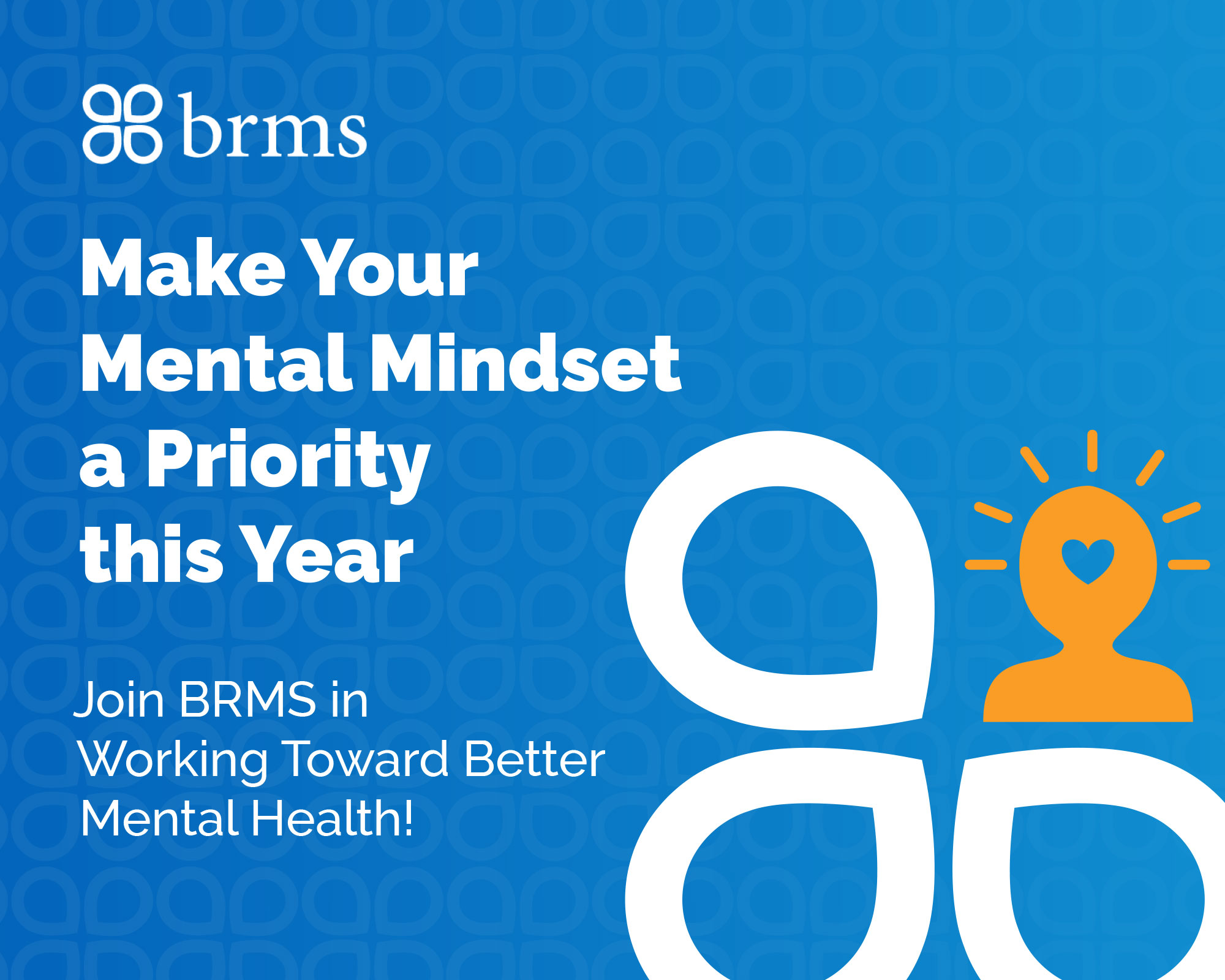

In the past year alone, around 23% of American adults reportedly experienced a mental health disorder; that’s close to 60 million people.* As we step into the new year, there’s no better time to work on improving mental health! With the end of the holiday season and the darker days of winter upon us, it’s especially important to make sure you’re taking the steps to maintain a positive outlook, while also keeping an eye out for the mental health of your loved ones.
This month, BRMS is here to help spread awareness with important insights and helpful tips for boosting your mental health and keeping yourself happy and healthy!

- Around 26% of US adults suffer annually from a diagnosable mental disorder.**
- On average, the delay between the start of mental health symptoms and receiving treatment is 11 years.***
- Over 5% of the US population struggled with suicidal thoughts in the past year.*
- Nearly 10% of adults in the US are predicted to suffer from a mental health disorder each year.**
- For every mental health provider in the US, there are around 340 patients.*
- People who have depression have a 40% higher risk of developing heart diseases.***
- 1 in 4 adults suffering from mental health issues are unable to see a doctor due to cost.*

1. Reach Out to Others
Having a strong social support system can be a key factor in improving your mental health. Humans are social creatures, so take the time to connect with friends and family.
2. Practice a Positive Outlook
Try to keep a positive view on life while maintaining a balance between your positive and negative emotions. Allow yourself to feel your emotions, but don’t let them control you.
3. Find Reasons to be Grateful
Reminding yourself of the good things in your life can help you keep a positive mental headspace. Whether these are big or small, write them down and keep them in mind.
4. Keep Yourself in Shape
Looking after your physical health can directly help improve your mental health. By exercising, eating healthy, and getting proper sleep, you can reduce feelings of stress and keep your body strong.
5. Practice Meditation
Mindfulness meditation can help you manage your emotions and let go of stress. Find a quiet location without distractions and work to keep an open mind.
6. Give Yourself Time to Relax
Stress management plays a significant role in your mental health, so it’s important to make time for yourself and relax in the ways that work best for you.
7. Seek Professional Help
Recognizing when you need help is vital for your mental health. If you’re struggling, don’t hesitate to start by reaching out to your primary care provider.
If you or someone you love is in crisis, dial 988 to be connected to counselors at the 988 Suicide and Crisis Lifeline.
